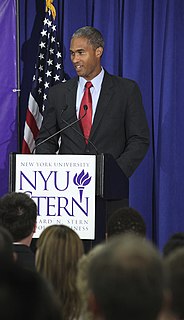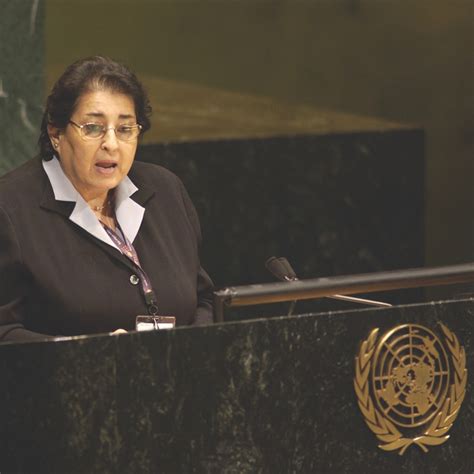A Quote by Angus Deaton
If poverty and underdevelopment are primarily consequences of poor institutions, then by weakening those institutions or stunting their development, large aid flows do exactly the opposite of what they are intended to do.
Related Quotes
When we think of globalization we are thinking in part of structures and institutions that have been developed over time and that have allowed us to become more interdependent and interrelated. But the development, the extraordinary development, of those structures and institutions has not fundamentally transformed our humanity. We are still those animals with fears and anxieties and insecurities in the face of death and dread and disappointment and disease.
We create institutions and policies on the basis of the way we make assumptions about us and others. We accept the fact that we will always have poor people around us. So we have had poor people around us. If we had believed that poverty is unacceptable to us, and that it should not belong to a civilized society, we would have created appropriate institutions and policies to create a poverty-free world.
[T]he sprawl of government into every conceivable realm of life has caused the withering of traditional institutions. Fathers become unnecessary if the government provides Aid to Families with Dependent Children. Church charities lose their mission when the government provides food, shelter and income to the poor. And the non-poor no longer feel pressed to provide aid to those in need, be they aged parents or their unfortunate neighbors-"compassion" having become the province of the state.
When a republic's most venerable institutions no longer operate as they were intended, it becomes possible for small cabals to usurp power, and, while keeping the forms, corrupt the function of those institutions for their own ends. Looking at things that way, the George W. Bush presidency has been both result and symptom of the decadence of America's constitutional mechanisms.
We also know that the various faith-based institutions provide about 50 per cent of the health and education services in the poor communities; we also know that they have a large constituency including women and youth; they have outreach and networks and they are credible to their people. If we want to achieve the Millennium Development Foals by scaling up the responses of all the communities, do we ignore this large investment in people? Or do we engage in dialogue and in action?
we have complaints that institutional dominance of the stock market has put 'the small investor at a disadvantage because he can't compete with the trust companies' huge resources, etc. The facts are quite the opposite. It may be that the institutions are better equipped than the individual to speculate in the market.But I am convinced that an individual investor with sound principles, and soundly advised, can do distinctly better over the long pull than large institutions.
































